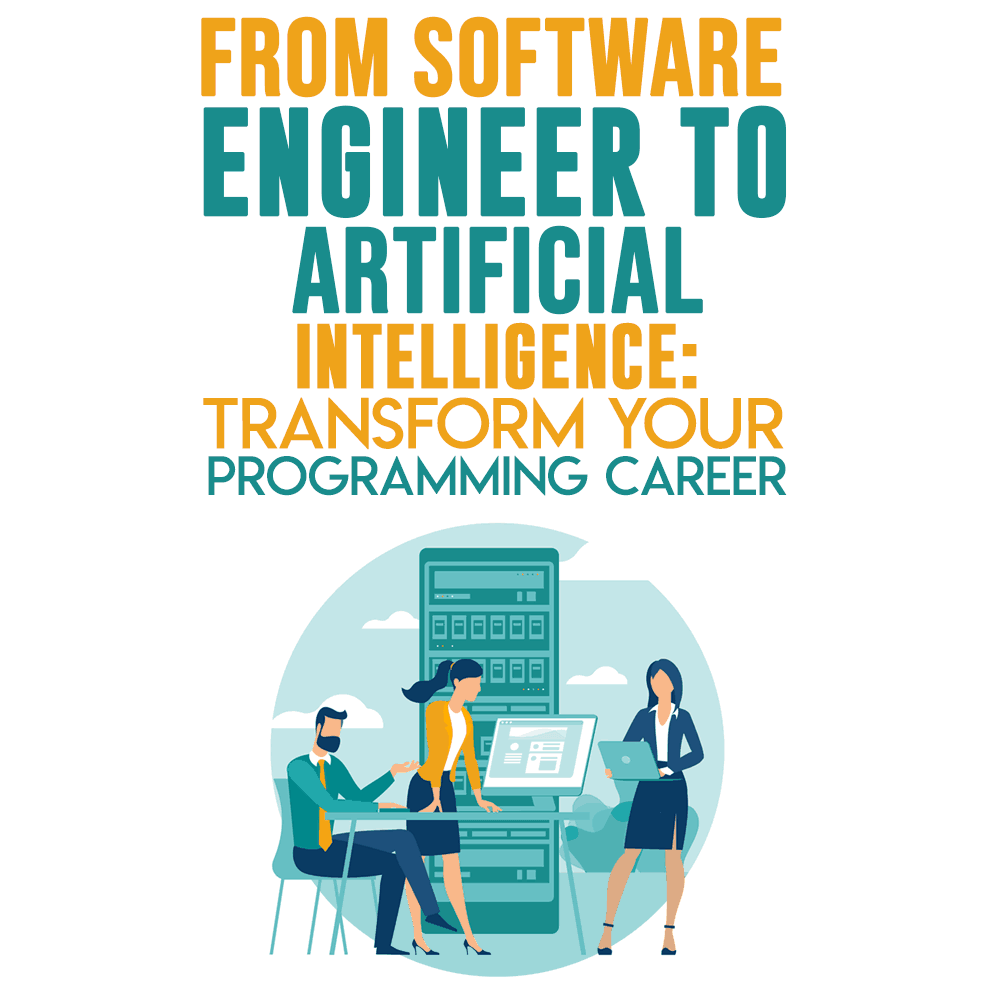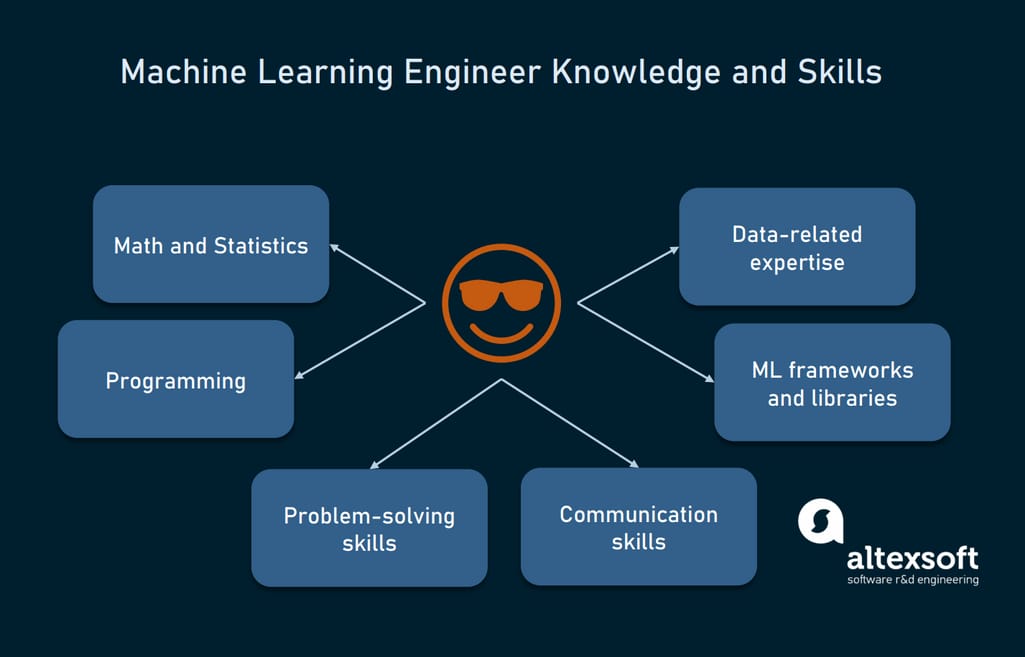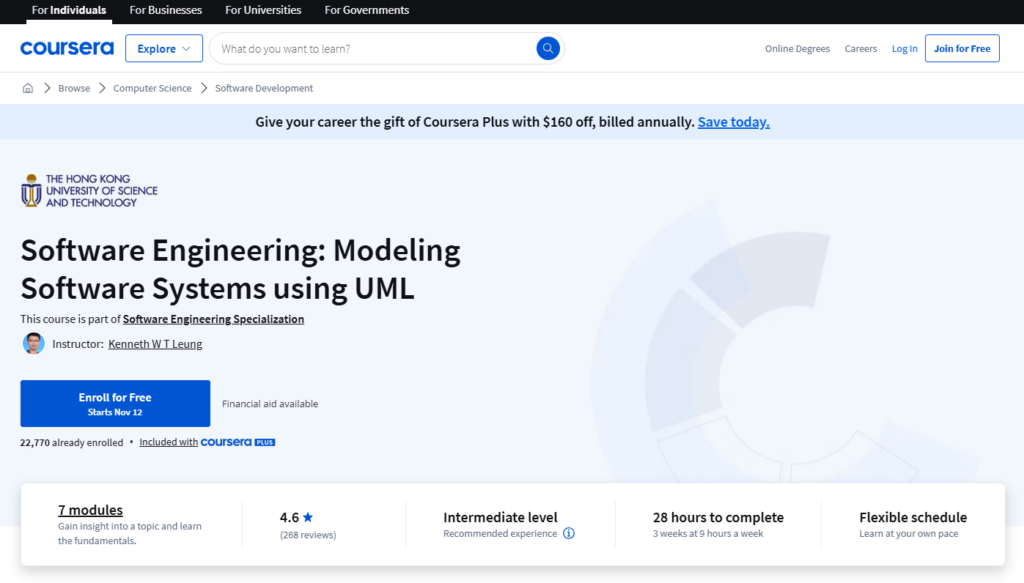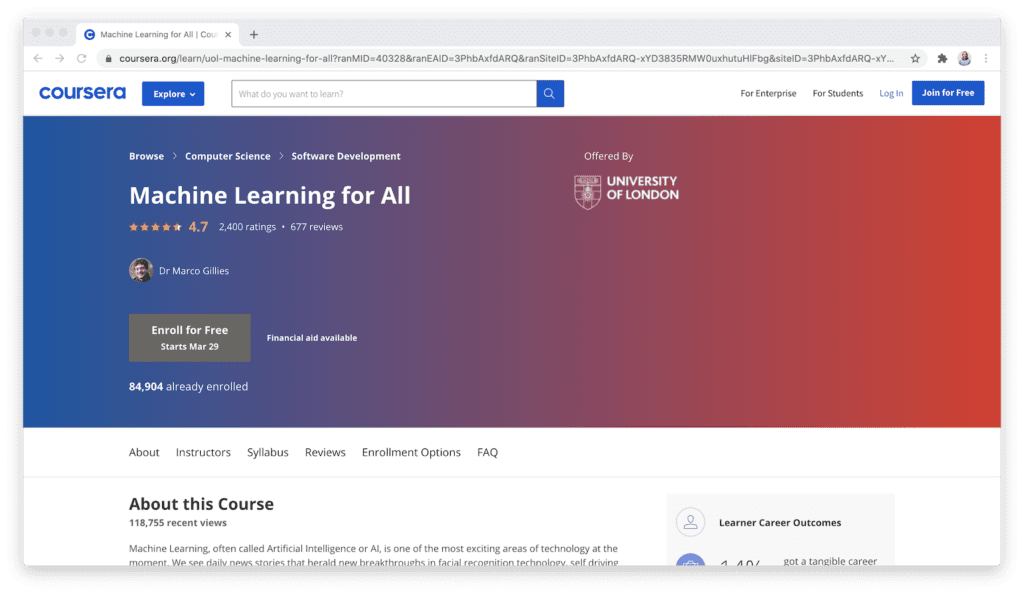All Categories
Featured
Table of Contents
Suddenly I was surrounded by individuals that could fix difficult physics concerns, recognized quantum mechanics, and could come up with intriguing experiments that got released in leading journals. I dropped in with a good team that encouraged me to explore points at my own pace, and I spent the next 7 years discovering a bunch of things, the capstone of which was understanding/converting a molecular dynamics loss feature (including those painfully discovered analytic by-products) from FORTRAN to C++, and writing a slope descent routine straight out of Numerical Dishes.

I did a 3 year postdoc with little to no artificial intelligence, just domain-specific biology stuff that I really did not locate interesting, and ultimately handled to obtain a work as a computer system researcher at a national laboratory. It was an excellent pivot- I was a concept investigator, meaning I can get my very own grants, compose documents, etc, yet really did not need to educate classes.
The smart Trick of Artificial Intelligence Software Development That Nobody is Discussing
I still didn't "get" maker discovering and wanted to function somewhere that did ML. I tried to obtain a task as a SWE at google- experienced the ringer of all the tough inquiries, and ultimately got rejected at the last action (thanks, Larry Web page) and mosted likely to benefit a biotech for a year before I lastly took care of to obtain worked with at Google during the "post-IPO, Google-classic" era, around 2007.
When I reached Google I promptly checked out all the tasks doing ML and found that various other than advertisements, there really wasn't a great deal. There was rephil, and SETI, and SmartASS, none of which appeared also remotely like the ML I wanted (deep semantic networks). I went and focused on other stuff- discovering the distributed innovation beneath Borg and Titan, and mastering the google3 pile and production environments, primarily from an SRE viewpoint.

All that time I 'd spent on artificial intelligence and computer system framework ... mosted likely to composing systems that filled 80GB hash tables into memory so a mapper could compute a tiny component of some gradient for some variable. Regrettably sibyl was really a dreadful system and I got begun the team for informing the leader the appropriate way to do DL was deep semantic networks on high performance computing hardware, not mapreduce on economical linux collection devices.
We had the information, the formulas, and the calculate, all at once. And even better, you didn't need to be within google to capitalize on it (except the huge data, which was changing quickly). I comprehend enough of the math, and the infra to lastly be an ML Engineer.
They are under intense stress to get results a couple of percent better than their collaborators, and afterwards when released, pivot to the next-next thing. Thats when I came up with one of my regulations: "The best ML models are distilled from postdoc tears". I saw a few individuals damage down and leave the sector completely simply from functioning on super-stressful jobs where they did excellent job, yet just got to parity with a rival.
Imposter disorder drove me to overcome my charlatan syndrome, and in doing so, along the method, I discovered what I was going after was not actually what made me happy. I'm much more completely satisfied puttering concerning using 5-year-old ML tech like things detectors to enhance my microscope's ability to track tardigrades, than I am attempting to become a popular scientist who uncloged the difficult problems of biology.
The Best Strategy To Use For How To Become A Machine Learning Engineer In 2025

Hello there world, I am Shadid. I have actually been a Software application Engineer for the last 8 years. I was interested in Device Learning and AI in university, I never had the chance or persistence to seek that enthusiasm. Now, when the ML area grew greatly in 2023, with the current innovations in big language designs, I have an awful yearning for the roadway not taken.
Scott talks regarding exactly how he completed a computer scientific research level just by following MIT curriculums and self researching. I Googled around for self-taught ML Engineers.
At this factor, I am not sure whether it is feasible to be a self-taught ML designer. I prepare on taking programs from open-source programs offered online, such as MIT Open Courseware and Coursera.
The Interview Kickstart Launches Best New Ml Engineer Course PDFs
To be clear, my objective below is not to construct the following groundbreaking model. I just wish to see if I can get an interview for a junior-level Artificial intelligence or Information Engineering job hereafter experiment. This is simply an experiment and I am not trying to shift into a role in ML.

I intend on journaling regarding it once a week and documenting every little thing that I study. Another disclaimer: I am not beginning from scratch. As I did my undergraduate level in Computer Engineering, I understand a few of the fundamentals required to pull this off. I have strong background knowledge of single and multivariable calculus, direct algebra, and statistics, as I took these courses in college about a decade back.
7 Easy Facts About Machine Learning & Ai Courses - Google Cloud Training Explained
I am going to leave out numerous of these courses. I am mosting likely to concentrate mainly on Artificial intelligence, Deep knowing, and Transformer Architecture. For the initial 4 weeks I am mosting likely to concentrate on ending up Device Discovering Field Of Expertise from Andrew Ng. The objective is to speed up run through these very first 3 programs and obtain a strong understanding of the essentials.
Now that you have actually seen the training course referrals, here's a quick guide for your learning maker discovering trip. We'll touch on the requirements for most machine finding out programs. More innovative courses will certainly call for the adhering to understanding before starting: Linear AlgebraProbabilityCalculusProgrammingThese are the general parts of being able to understand exactly how device discovering works under the hood.
The very first course in this checklist, Artificial intelligence by Andrew Ng, consists of refresher courses on most of the mathematics you'll require, yet it may be testing to discover artificial intelligence and Linear Algebra if you have not taken Linear Algebra before at the very same time. If you need to review the math required, check out: I 'd suggest discovering Python given that the majority of good ML courses make use of Python.
The 6-Minute Rule for Untitled
Furthermore, an additional exceptional Python resource is , which has numerous totally free Python lessons in their interactive web browser setting. After finding out the prerequisite basics, you can start to truly recognize exactly how the formulas function. There's a base collection of formulas in artificial intelligence that everyone must be familiar with and have experience utilizing.

The programs detailed over have essentially all of these with some variation. Understanding just how these methods job and when to utilize them will be important when handling new tasks. After the basics, some more sophisticated strategies to find out would be: EnsemblesBoostingNeural Networks and Deep LearningThis is just a begin, however these formulas are what you see in a few of the most interesting machine learning remedies, and they're useful additions to your toolbox.
Discovering maker discovering online is tough and incredibly satisfying. It's important to remember that just watching videos and taking tests does not mean you're truly finding out the material. Get in search phrases like "equipment learning" and "Twitter", or whatever else you're interested in, and struck the little "Create Alert" web link on the left to obtain emails.
How To Become A Machine Learning Engineer (2025 Guide) Fundamentals Explained
Artificial intelligence is extremely pleasurable and interesting to learn and try out, and I wish you discovered a training course over that fits your own trip right into this amazing area. Artificial intelligence composes one element of Data Science. If you're also curious about discovering regarding stats, visualization, data evaluation, and extra make certain to look into the top data science courses, which is an overview that adheres to a similar format to this.
Table of Contents
Latest Posts
Data Science Vs. Software Engineering Interviews – What’s The Difference?
Most Common Data Science Interview Questions & How To Answer Them
A Comprehensive Guide To Preparing For A Software Engineering Interview
More
Latest Posts
Data Science Vs. Software Engineering Interviews – What’s The Difference?
Most Common Data Science Interview Questions & How To Answer Them
A Comprehensive Guide To Preparing For A Software Engineering Interview